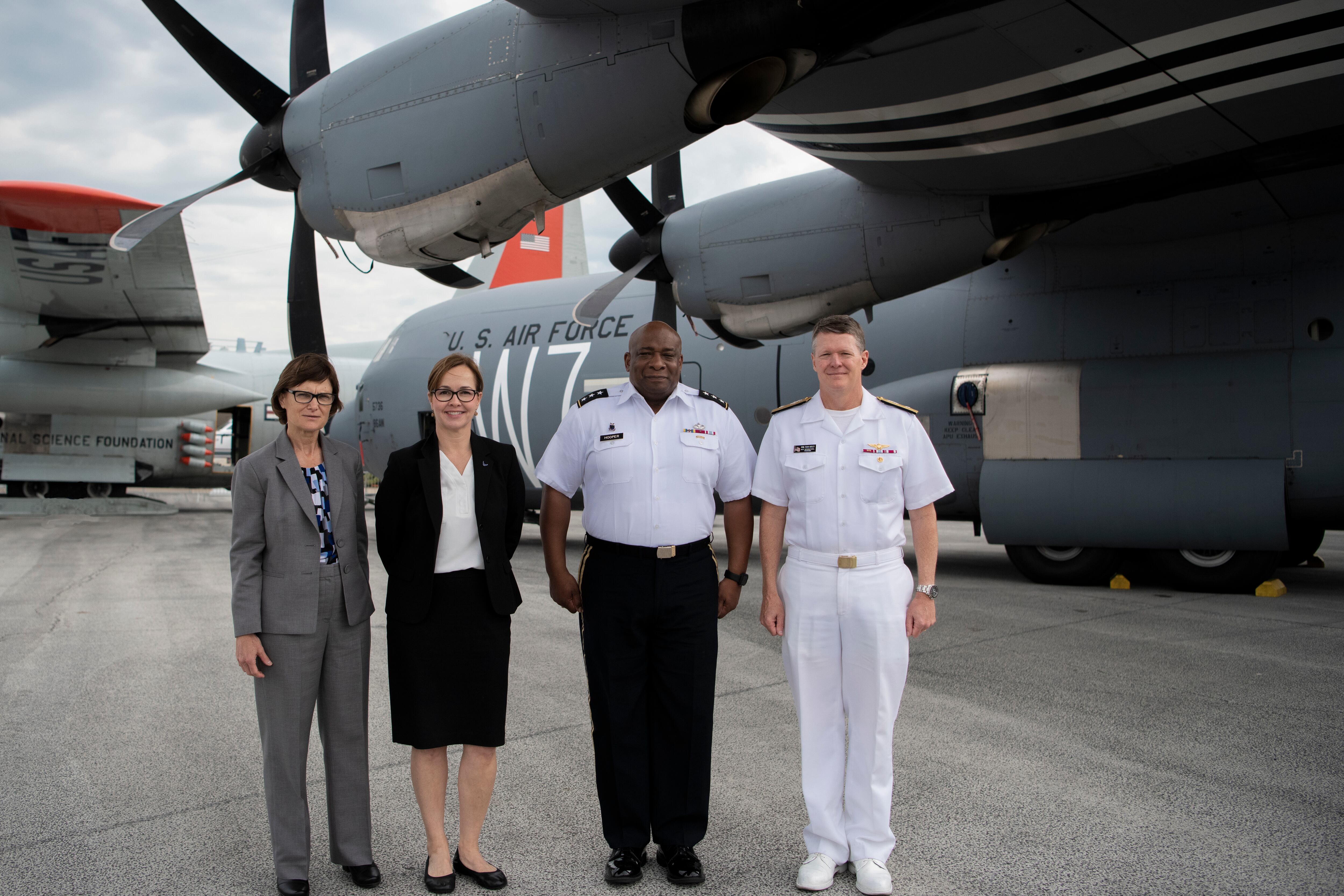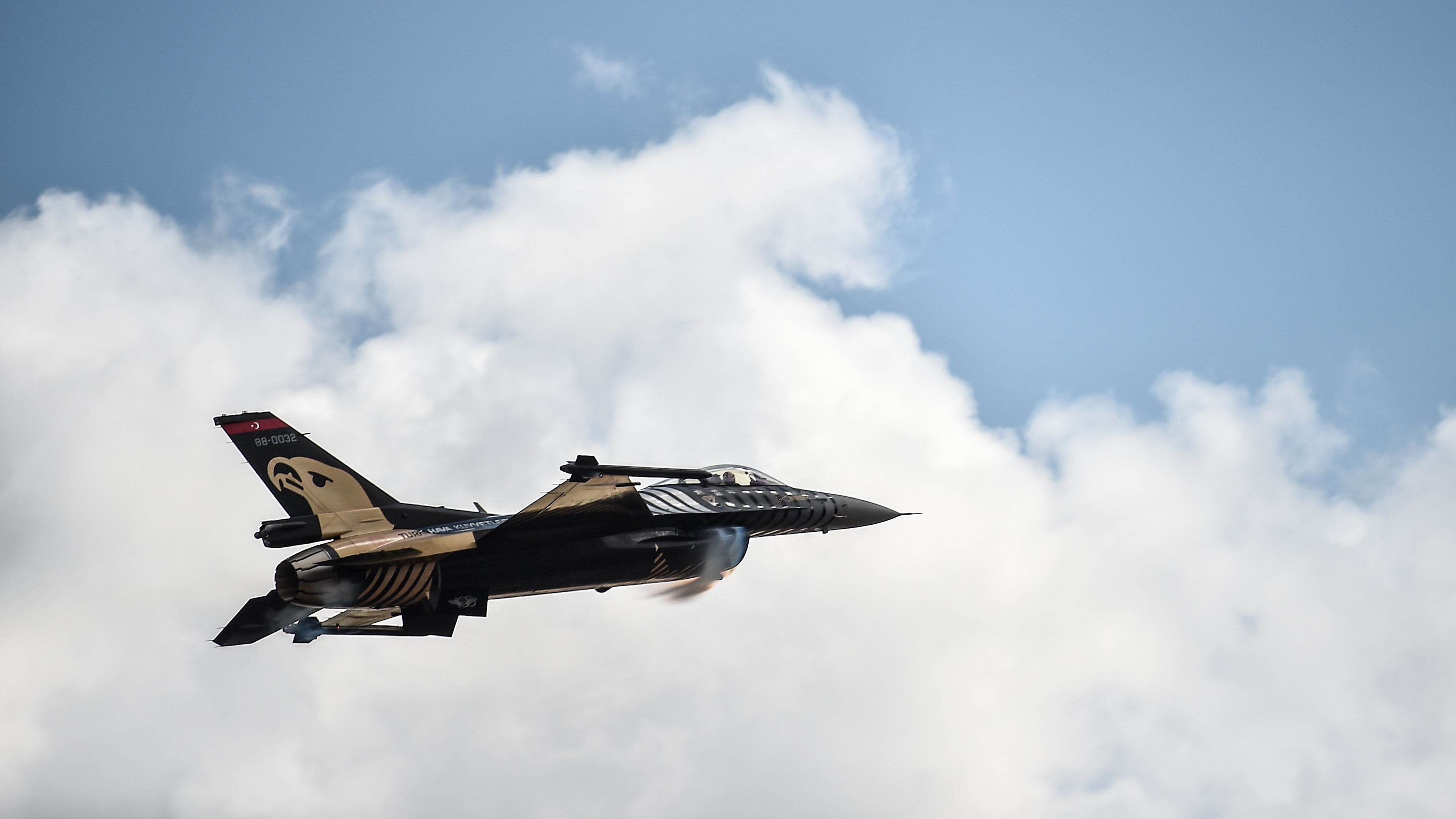DUBAI, United Arab Emirates — Earlier this month, the United Arab Emirates launched a government-owned defense conglomerate formed with the aim of spearheading advanced technology development projects with other nations.
But if the UAE wants to partner with the United States on those efforts, it will need to satisfy U.S. concerns about data security, said R. Clarke Cooper, assistant secretary of state for political military affairs.
“Their aspiration is to get beyond providing, say, nuts and bolts to significant platforms or equipment. They want to move into more of a research and development space, which we would certainly welcome,” Cooper told reporters during a Nov. 18 roundtable at Dubai Airshow.
Click here for more from Dubai Airshow 2019.
“The caveat to that is that as they move forward to a research and development space is seeking additional assurances on tech security and seeking additional manifestations or evidence of refined procurement processes.”
The UAE established Edge, a government owned conglomerate of around 25 companies worth a combined annual revenue of $5 billion, to create cutting-edge defense products and rapidly bring them to market. The organization will focus on platforms and systems; missiles and weapons; cyber defense; electronic warfare and intelligence; and mission support, Faisal Al Bannai, CEO and managing director of Edge, told Defense News earlier this month.

To do this, it will rely not only on investments that cut across existing UAE defense firms, but partnerships with international companies and academia.
But if the UAE wants to do research or production with the U.S. military, there will have to be “visible guarantees" in place, Clarke said.
"That means standing up and creation of some entities other than Edge that comport with research and development,” for instance, organizations with oversight authorities and the responsibility to safeguard data and technology.
RELATED

Clarke also declined to detail what the potential areas of cooperation the United States is interested in pursuing with the UAE.
"Are there opportunities? Yes. But I think one thing that we are equally interested in is what's available beyond the bilateral,” he said, adding that the U.S. government would give special consideration to projects it can work on with the UAE and other nations in the region or elsewhere. It “doesn’t need to be a NATO state,” but the goal would be to produce technology in line with the “NATO standard,” he said.
Clarke’s comments echo those of the U.S. Air Force Chief of Staff Dave Goldfein, who on Saturday called on Middle Eastern air chiefs gathered in Dubai to begin work to network together their air defense systems into an enterprise better positioned to thwart Iranian missile attacks.
They might also reflect a growing problem for the U.S. government — international nations’ willingness to risk sanctions to buy technologies from China and Russia instead of the United States. This year, U.S. expelled Turkey from the F-35 program after Ankara ordered Russia’s S-400 air defense system, which has now been delivered. Aside from that, it could also be subject to sanctions under the Countering America’s Adversaries Through Sanctions Act, or CAATSA.
Clarke administered a similar threat to Egypt on Tuesday, saying that Cairo could trigger sanctions if it goes through with its planned purchase of 20 Su-35 fighter jets from Russia. It also “puts them at risk of loss of future acquisitions,” he said.
RELATED

The United Arab Emirates has shown some interest in high-tech Russian gear. On Monday, UAE defense firm Tawazun announced that it would take a 50 percent stake in VR Technologies, a division of Russian Helicopters. In 2017, Russian defense industry giant Rostec announced an agreement to co-develop a fifth generation fighter jet together. Those efforts seemed to have not borne fruit, but Rostec continues to market the Su-35 and Su-57 to Abu Dhabi.
“The ball is on the other side, and it’s up to the Emirati government to decide when and what to discuss next,” Victor Kladov, Rostec’s director for international cooperation and regional policy, told Defense News on Nov. 18.
“We are open, we are as much open as we can for supplies, for industrial partnership, for transfer of technologies,” he said.
Valerie Insinna is Defense News' air warfare reporter. She previously worked the Navy/congressional beats for Defense Daily, which followed almost three years as a staff writer for National Defense Magazine. Prior to that, she worked as an editorial assistant for the Tokyo Shimbun’s Washington bureau.








